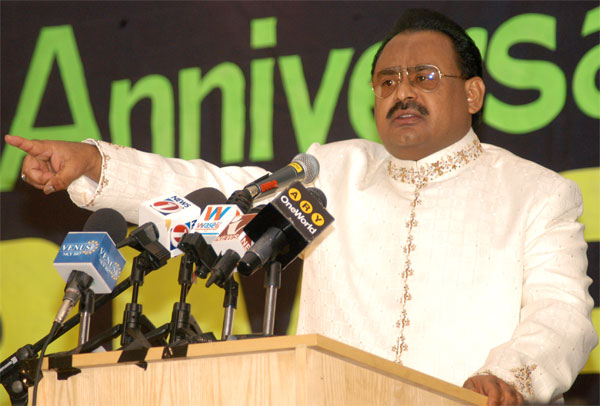War On Terror: As Washington moves an aircraft carrier off Pakistan's coast, U.S. commandos are reportedly poised to launch raids against terror targets inside Pakistan. It's about time.
It appears hawks within the Pentagon and CIA have won a long-running policy battle with risk-averse officials in the administration and diplomats at the State Department. The result is a more aggressive, go-it-alone policy in response to Pakistan's failure to disrupt terrorist training camps and cross-border attacks against our troops and the Afghan government.
Politics and diplomacy had not produced the desired results, and they've had ample opportunity to work. For nearly seven years now — as we've coaxed, cajoled and even bribed our "ally" with billions in aid — Osama bin Laden and his henchmen have remained hidden inside Pakistan's tribal areas. Patience with Islamabad has run out. It's time for unilateral military action.
The U.S. military confirms it is sending extra air power to the Afghanistan-Pakistan border by moving the aircraft carrier USS Abraham Lincoln from the Persian Gulf to the Gulf of Oman. The battle group ostensibly will provide air support for special forces who reportedly have been given the green light — after tumultuous debate within the White House — to conduct raids deep inside Pakistan's tribal belt to eradicate al-Qaida and Taliban bases.
According to a Houston Chronicle report, quoting both Democrat and Republican lawmakers who recently received a briefing from U.S. commanders in the region, the White House has authorized a secret plan to deploy commandos into Pakistan's tribal areas.
Islamabad's ineffective campaign makes it "imperative that U.S. forces be allowed to pursue the Taliban and al-Qaida in tribal areas inside Pakistan," said Rep. Michael McCaul, R-Texas. "If we don't do something now, they're going to strike us again (in the U.S.), and it is going to be out of this area."
His concern echoes that of the chairman of the Joint Chiefs of Staff, who recently returned from Islamabad warning that the next al-Qaida attack on America will originate from inside Pakistan if we can't convince our ally to stop cutting peace deals with our enemy and deny it safe haven.
At the same time, President Bush confirmed rumors he's authorized a troop escalation in the region in 2009. He didn't offer details, but Pentagon officials expect about 6,000 in reinforcements, raising U.S. troop presence in Afghanistan to about 40,000.
A military buildup along the border is critical to supporting special forces operations inside Pakistan, which would represent a major departure from previous policy respecting Islamabad's ban on such operations.
Of course, in concert with launching any covert raids into Pakistani territory, Washington will also have to ready a black ops team to help secure Islamabad's nuclear warheads so they don't fall into the wrong hands in the event of a political uprising.
What broke the long-standing bias within the administration against unilateral action? Several troubling developments, including:
• A 2006 peace deal brokered by Pakistani President Pervez Musharraf that has led to a 40% increase in the number of cross-border attacks from Pakistan's tribal belt, where insurgents now operate with impunity.
• U.S. intelligence reports showing al-Qaida's leadership has carved out a secure base inside the tribal area, along with a band of camps for training a new cadre of Western-looking terrorists to attack the U.S.
• Reports that the flow of foreign fighters and funding into the Pakistani border region from the Middle East has soared as jihadists relocate from Iraq.
• U.S. and Afghan intelligence showing evidence the Pakistani military is arming, training and sharing logistical data with Taliban insurgents to help them target U.S. and Afghan troops.
• A border incident last month in which Pakistani soldiers fired on U.S. forces.
• Evidence the Pakistani government may be behind a campaign to destabilize the U.S.-backed Afghan government, including assassination attempts on Afghan President Hamid Karzai.
• The bombing of the Indian embassy in Kabul, which killed 41 including Indian officials. Karzai has blamed Pakistan's military intelligence agency.
Pakistan's border area is a powder keg, and it seems that rather than trying to stabilize things,The Pakistani goverment is trying to light the fuse.U.S.military intervention is the only option left to control the region and put our enemy out of business.
skip to main |
skip to sidebar


Quaid-e-Thereek addressing the gathering

Altaf Bhai addressing the gathering

Quaid-e-Thereek Altaf Hussain Bhai

Altaf Hussain Bhai
Mqm Loyals is a group of people who are sincere and loyal with the founder leader of Muttahida Quami Movement (Mqm) Altaf Hussain Bhai and to Mqm.Stop those who are creating differences by doing false,fake and negative propoganda against Mqm and Altaf Bhai.Show your true love and unconditional support for Quaid-e-Tehreek Altaf Bhai and Muttahida Quami Movement.
About Me

- Muttahida Loyals
- True,Loyal and Sincere Towards The Cause Given By Quaid-Thereek Altaf Hussain Bhai.
30th APMSO Anniversary

Quaid-e-Thereek addressing the gathering
30th APMSO Anniversary

Altaf Bhai addressing the gathering
Geniune Political Thinker

Quaid-e-Thereek Altaf Hussain Bhai
True Voice Of A Nation

Altaf Hussain Bhai